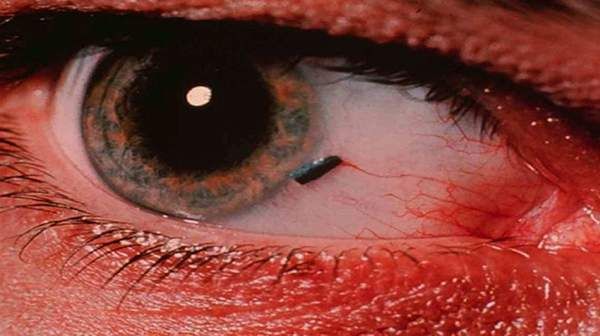What's in this article?
A Foreign Object in your Eye could be a piece of dust, grit, or other substance that comes in contact with the eye. Most of the time, these objects are so small, we don’t notice them and when they get into the eye, they’re harmless and easily removable. However, depending on the object and how deeply it enters the eye, foreign objects can be serious.
If you get a Foreign Object in your eye
- Wash your hands with soap and water.
- Try to flush the object out of your eye with a gentle stream of clean, warm water. Use an eyecup or a small, clean drinking glass positioned with its rim resting on the bone at the base of your eye socket.
- Another way to flush a Foreign Object from your eye is to get into a shower and aim a gentle stream of lukewarm water on your forehead over the affected eye while holding your eyelid open.
- If you’re wearing contact lenses, it’s best to remove the lens before or while you’re irrigating the surface of the eye with water. Sometimes a foreign body can be embedded on the undersurface of the lens.
To help someone else
- Wash your hands with soap and water.
- Seat the person in a well-lighted area.
- Gently examine the eye to find the object. Pull the lower lid down and ask the person to look up. Then hold the upper lid while the person looks down.
- If the object is floating in the tear film on the surface of the eye, try using a medicine dropper filled with clean, warm water to flush it out. Or tilt the head back and irrigate the surface of the eye with clean water from a drinking glass or a gentle stream of tap water.
Eye Foreign Body Causes
Many eye injuries can be prevented. Something in the eye (a foreign body) is most often the result of improper or no eye protection while working in an environment that exposes one to small flying debris.
First Aid if Foreign Object in the Eye
If you have a foreign object in your eye, prompt diagnosis and treatment will help prevent infection and potential loss of vision. This is especially important in extreme or intraocular cases.
Removing a foreign object yourself could cause serious eye damage. Get immediate emergency treatment if any of the following factors exist with the foreign object:
- it has sharp or rough edges
- it is large enough to interfere with closing your eye
- it contains chemicals
- it was propelled into the eye at a high rate of speed
- it is embedded in the eye
- it is causing bleeding in the eye
If you have a foreign object embedded in your eye, or you are helping someone who has this problem, it is important to get medical help immediately. To avoid further injury to the eye:
- Restrict eye movement.
- Bandage the eye using a clean cloth or gauze.
- If the object is too large to allow for a bandage, cover the eye with a paper cup.
- The uninjured eye also should be covered. This will help prevent eye movement in the affected eye.
Your situation also warrants emergency treatment if the following symptoms are present after any type of object is removed:
- you still have a sensation of having something in your eye
- you have abnormal vision, tearing, and/or blinking
- your cornea has a cloudy spot on it
- the overall condition of your eye worsens
Treatment for Foreign Objects
The course of treatment for a foreign object in the eye depends on what the object is, and the degree of contact it has made with the eye.
Minor foreign objects include things like dust, grit, or an eyelash that is easily removable at home.
The best method of removal is to wash out the eye with an eye wash solution such as Advanced Eye Relief® Eye Wash or if none is available, tap water. If a tap is not nearby, you can use a water fountain, a hose (using a gentle flow), or a shower. The most important point is to use a generous amount of water to ensure the particle is completely flushed out of the eye.
If you still feel the object in your eye, manual removal is the next option. It’s recommended that you use a tissue or cotton swap while doing this, being very careful not to swipe across the eye. Be sure to look in the opposite direction of where you feel the object (if it’s in your upper eyelid, look down, and vice versa) to protect the cornea.
For larger foreign bodies, or foreign bodies that may have penetrated the eye, seek medical attention immediately. If you have any question as to the seriousness of the injury, you should see an eye care professional.
Certain medical treatments for damage caused by foreign objects range from topical medications, emergency care to determine the appropriate treatment for an injury from foreign objects, to surgery (for objects that have penetrated or ruptured the eye).





